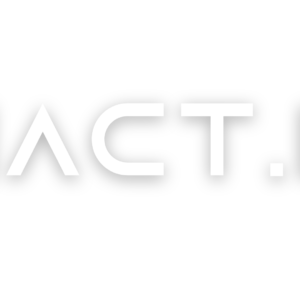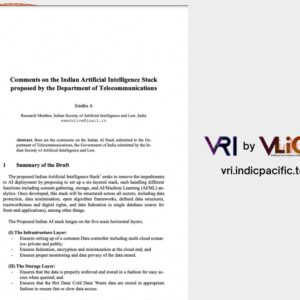India’s first AI policy was presented to the world in 2018. The policy, developed by NITI Aayog, the Government of India’s key policy think tank, envisioned India as the next “garage” for AI start-ups and their innovations. The focus on responsible AI has also been a priority of the G20 India Presidency. India’s Council Chairpersonship of the Global Partnership on Artificial Intelligence (GPAI) in 2023 reflects the Government of India’s commitment to the field of AI as an industry.
However, nearly 4-5 years have elapsed since the release of the 2018 AI policy. The technology landscape has undergone significant changes during this period. In my opinion, the current policy is no longer adequate or appropriate for the post-COVID technology market.
The rise of generative AI and Artificial Intelligence Hype has also been a challenge. This has created uncertainty for investors and entrepreneurs, hindering innovation. Many use cases and test cases of generative AI and other forms of AI applications remain scattered and uncoordinated. There is no clear consensus on how to regulate different classes of AI technologies.
While there have been some international declarations and recommendation statements through multilateral bodies/groups like UNESCO, ITU, OECD, the G20, the G7, and the European Union, even the UN Secretary General has stressed the need for UN member-states to develop clear guidelines and approaches on how to regulate artificial intelligence in his 2023 UN General Assembly address.
This proposal submitted by Indic Pacific Legal Research addresses those key technology, industry and legal-regulatory problems and trends, and presents a point-to-point proposal to reinvent and develop a revised National Strategy on Artificial Intelligence. The proposal consists of a set of law & policy recommendations, with a two-fold approach:
The Proposal for a Revised National Strategy for Artificial Intelligence
The Proposal for the Artificial Intelligence (Development & Regulation) Act, 2023
In the Annex to this Proposal, we have provided additional Recommendations on Artificial Intelligence Policy based on the body of research developed by Indic Pacific Legal Research and its member organizations, including, the Indian Society of Artificial Intelligence and Law.
Reminder: the AI Act and the New Strategy can now be read at aiact.in | artificialintelligenceact.in
To provide a concise overview of the state of ‘AI Ethics’ both globally and in India, it is crucial to focus on three key domains: (1) technology development and entrepreneurship, (2) industry standardization, and (3) legal and regulatory matters. Our organization has actively contributed to this field by producing significant reports and publications that highlight critical issues related to AI regulation and address the prevailing hype around AI. These contributions are detailed below for your further review and consideration.
Investors express apprehension regarding the widespread adoption of AI applications and the absence of technological neutrality required for ensuring their long-term sustainability across various products and services. In order to foster an environment conducive for MSMEs and emerging start-ups to embark on AI research and the development of AI solutions, it is imperative to provide them with subsidies.
Currently, India faces a deficiency in the requisite ecosystem for AI endeavours. Even prominent semiconductor firms like NVIDIA and major technology entities such as Reliance and TCS have advocated for government support in semiconductor investments and the establishment of robust computing infrastructure to benefit local start-ups.
As prominent companies actively establish their own Responsible AI guidelines and self-regulatory protocols, it becomes imperative for India to prioritize the adoption of industry standards for the classification and categorization of specific use cases and test cases. We had previously proposed this approach in the context of Generative AI applications in a prior document.
The application of AI technology in Indian urban and rural areas, spanning various sectors, naturally involves elements of reference and inference unique to the region. However, it is noteworthy that the predominant discourse on ‘AI ethics’ has been primarily confined to major cities such as New Delhi and a select few metropolitan centers. In order to facilitate the development of AI policies, AI diplomacy, AI entrepreneurship, and AI regulations – the four essential facets of India’s AI landscape, it is imperative to ensure the active participation and equitable recognition of stakeholders from across the country.
Distinguished industry and policy organizations, although representing the concerns of larger players including prominent names, are fulfilling their expected role. Nonetheless, relying solely on these entities to devise, propose, and advocate solutions tailored to the requirements of our MSMEs and emerging start-ups could potentially hinder the establishment of industry-wide standards. Therefore, the Ministry of Electronics and Information Technology (MeiTY) should engage in thoughtful collaboration with the Ministry of Commerce & Industry to address the issue of gatekeeping within the AI sector across the four domains of AI policy, AI diplomacy, AI entrepreneurship, and AI regulation.
Reminder: the AI Act and the New Strategy can now be read at aiact.in | artificialintelligenceact.in
Many use cases and test cases of AI applications as products and services, across industry sectors lack transparency in terms of their commercial viability and safety on even basic issues like data processing, privacy, consent and right of erasure (dark patterns). At the level of algorithmic activities and operations, there is a lack of sector-specific standardisation, which could be advantageous for Indian regulatory authorities and market players in driving policy interventions & innovations at a global level. Nevertheless, the best countries can do is to have their regulators enforce existing sector-specific regulations to test and enable better AI regulation standards, starting from data protection & processing to the issue of algorithmic activities & operations.
In a global context, it’s worth noting that think tanks, as well as prominent AI ethics advocates and thought leaders in Western Europe and Northern American nations, exhibit comparatively lesser interest in the G20’s efforts to advance Responsible AI ethics standards. Their attention appears to be primarily drawn to the Responsible AI principles and solutions emerging from the G7 Hiroshima, a perspective that is duly acknowledged.
However, it is noteworthy that a significant number of AI ethicists and industry figures in Western Europe and Northern America seem to be overlooking the valuable contributions and viewpoints that India offers in the realm of AI Ethics.
Moreover, it is essential to recognize that vital stakeholders responsible for advancing discussions on AI ethics and policy within South East Asia (comprising ASEAN nations) and Japan have similarly overlooked the ongoing AI policy discourse in India. Given India’s dedication to establishing the Indo-Pacific Quad—a partnership encompassing India, Australia, the United States, and Japan—with the aim of fostering collaboration on pivotal technologies and regulatory matters, it is imperative for the Government of India to take significant steps to facilitate cooperation with dedicated and relevant AI ethics industry leaders and thought leaders in South East Asia. This collaborative effort can play a crucial role in advancing the shared objectives of the Quad.
The discourse surrounding AI and Law in India has largely remained unchanged without any notable developments or transformative shifts. The predominant topics of discussion have primarily revolved around issues related to data protection rights, notably exemplified by the introduction of the Digital Personal Data Protection Act, 2023. Additionally, considerations have also extended to address concerns related to information warfare and sovereignty and develop a civil & criminal liability regime for digital intermediaries, a notable instance being the introduction of the Information Technology (Intermediary Guidelines and Digital Media Ethics Code) Rules, 2021.
Nevertheless, it is laudable to observe that at the level of the Council of Ministers, there exists a discernible and unwavering commitment to driving forward these discussions. This unwavering intent reflects a dedicated approach towards addressing the intricate convergence of AI and legal aspects in the Indian context.
Indeed, legislative advancements in areas like digital sovereignty, digital connectivity, drones, dark patterns and data protection & consent have been both responsive and aligned with the needs of the Indian legal landscape. On numerous intricate facets of law and policy, there is no pressing urgency for regulatory interventions in India. However, a notable observation is the absence of original thinking and innovative insights focused on technology law and policy within the country.
The discourse surrounding AI and Law within India tends to be confined to addressing three primary issues:
Digital sovereignty
Data protection law
Responsible AI
With the exception of the first two concerns, it becomes apparent that documents published by various entities involved in AI policy have been somewhat inadequate in fostering an informed, industry-specific approach towards regulating and nurturing a thriving AI sector in India.
Despite the Government’s expressed commitment to encouraging policy inclusivity, a significant hurdle has been the prevalence of gatekeeping practices across the landscape of law and policy influencers and thought leaders. Regrettably, many of these discussions tend to gain recognition and significance only when conducted in a handful of major metropolitan areas, thus limiting the diversity and inclusivity of perspectives.
Numerous AI companies in India have yet to establish standardized self-regulatory frameworks aimed at fostering market integrity. This situation can be attributed to a confluence of factors.
o First, the proliferation of use cases is essential to stimulate the adoption of self-regulatory practices and measures.
o Second, even if the commercial need for self-regulation is acknowledged, the absence of significant advancements in the AI and Law discourse in India for nearly 4-5 years has resulted in a lack of clarity concerning the country’s stance on four critical dimensions: AI policy, AI diplomacy, AI entrepreneurship, and AI regulation. This lack of clarity contributes to regulatory uncertainty, akin to the challenges faced by the Web3 and gaming industries in India.
o Third, this lack of clarity in policy and regulation creates an environment of uncertainty, similar to the issues faced by the Web3 and gaming industries in India.
o Fourth, gatekeeping practices further compound the complexity of the discourse and hinder the engagement of diverse voices. This sentiment is echoed by key commercial players across strategic & non-strategic and emerging sectors in India, highlighting the need for a more inclusive and open dialogue.
Reminder: the AI Act and the New Strategy can now be read at aiact.in | artificialintelligenceact.in
Proposal for a New Artificial Intelligence Strategy for India
We suggest that in a reinvented AI strategy for India, the four pillars of India’s position on Artificial Intelligence must be AI policy, AI diplomacy, AI entrepreneurship and AI regulation. These are the most specific commitments in the four key areas that could be achieved in 5-10 years. The rationale and benefits of adopting each of the points in the policy proposal are explained on a point-to-point basis.
Strengthen and empower India’s Digital Public Infrastructure to transform its potential to integrate governmental and business use cases of artificial intelligence at a whole-of-government level.
Transform and rejuvenate forums of judicial governance and dispute resolution to keep them effectively prepared to address and resolve disputes related to artificial intelligence, which are related to issues ranging from those of data protection & consent to algorithmic activities & operations and corporate ethics.
Reminder: the AI Act and the New Strategy can now be read at aiact.in | artificialintelligenceact.in
Focus on the socio-technical empowerment and skill mobility for businesses, professionals, and academic researchers in India and the Global South to mobilize and prepare for the proliferation of artificial intelligence & its versatile impact across sectors.
Enable safer and commercially productive AI & data ecosystems for startups, professionals and MSMEs in the Global South countries.
Bridge economic and digitalcooperation with countries in the Global South to promote the implementation of sustainable regulatory and enforcement standards, when the lack of regulation on digital technologies, especially artificial intelligence
Develop and promote India-centric, locally viable commercial solutions in the form of AI products & services.
Enable the industry standardization of sector-specific technical & commercial AI use cases.
Subsidize & incentivize the availability of compute infrastructure, and technology ecosystems to develop AI solutions for local MSMEs and emerging start-ups.
Establish a decentralized,localized & open-source data repository for AI test cases & use cases and their training models, with services to annotate & evaluate models and develop a system of incentives to encourage users to contribute data and to annotate and evaluate models.
Educate better and informed perspectives on AI-related investments on areas such as:
(1) research & development,
(2) supply chains,
(3) digital goods & services and
(4) public-private partnership & digital public infrastructure.
Reminder: the AI Act and the New Strategy can now be read at aiact.in | artificialintelligenceact.in
Address and mitigate the risks of artificial intelligence hype by promoting net neutrality to discourageanti-competitive practices involving the use of AI at various levels and stages of:
(1) research & development,
(2) maintenance,
(3) production,
(4) marketing & advertising,
(5) regulation,
(6) self-regulation, and
(7) proliferation.
AI Regulation
Foster flexible and gradually compliant data privacy and human-centric explainable AI ecosystems for consumers and businesses.
Develop regulatory sandboxes for sector-specific use cases of AI to standardize AI test cases & use cases subject to their technical and commercial viability.
Promote the sensitization of the first order, second order and third order effects of using AI products and services to B2C consumers (or citizens), B2B entities and even inter and intra-government stakeholders, which includes courts, ministries, departments, sectoral regulators and statutory bodies at both standalone & whole-of-government levels.
Enable self-regulatory practices to strengthen the sector-neutral applicability of the Digital Personal Data Protection Act, 2023 and its regulations, circulars and guidelines.
Promote and maneuver intellectual property protections for AI entrepreneurs & research ecosystems in India.
Any suggestions and feedback on the points of proposal can be communicated at vligta@indicpacific.com.
| VLiGTA Resource Identifier | AIACT2 |
|---|---|
| Author(s) | |
| Publisher | |
| Publication Type | Digital |



© Indic Pacific Legal Research LLP. All Rights Reserved.
Already on VLiGTA? Log in
Having trouble logging in? Learner help center
This site is protected by reCAPTCHA Enterprise and the Google Privacy Policy and Terms of Service apply.